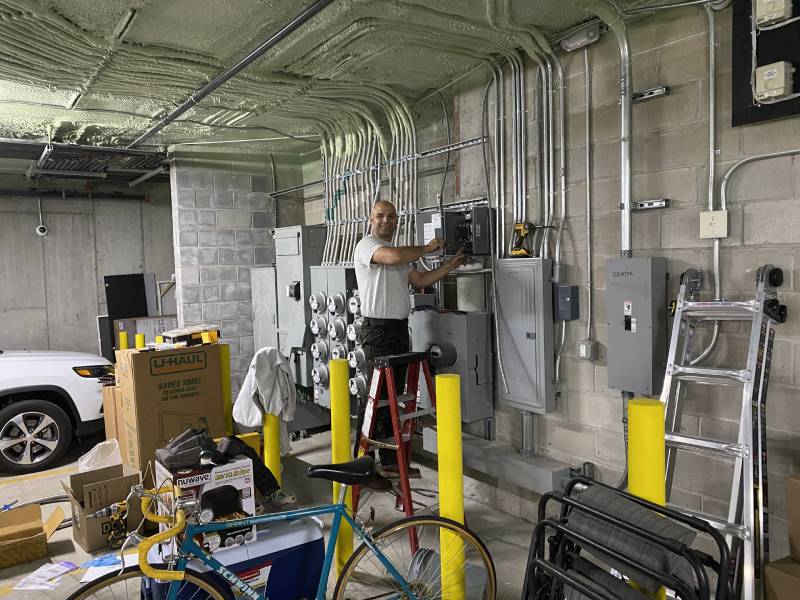
An electrician is someone who focuses on the power wiring of structures, machines and connected equipment. Because electric machines are highly hypersensitive and potentially dangerous, electricians are always in need for disasters and to cope with electrical problems. Technicians can work throughout residential, or private electrician jobs or commercial jobs. Non commercial jobs may entail work such since fitting a property intended for electrical wiring plus investigating and fixing electrical problems within a home. Commercial electrical work may well involve fitting buildings for electrical wiring, doing electrical work all over for organizations and working on-board planes or cruises. An electrician may do a variety of electrical jobs, or they may opt to specialize in particular regions of electrical administration. For example , some electricians work in the region of installing plus repairing electrical infrastructures such as power lines and power generators. Other electricians might focus on the electric powered wiring of delivers, airplanes, automobiles, or even other locations. Electricians usually are a vital aspect of the contemporary day workforce while more and even more businesses, residential properties and day to be able to day activities become reliant on electricity.
Residential vs. Business Technicians
The a couple of most common types of electricians are non commercial electricians and industrial electricians. Some technicians choose to are skilled in one among these areas, although many are skilled to cope with a variety of work opportunities in either business or residential regions.
Residential electricians should receive training and even a license ahead of they are in a position to work on residential assignments in their own. A duties of the residential electrician are generally varied. People might call one for many methods from the maintenance of an outlet within their home to a complete rewiring of their home. The job of non commercial electricians can end up being broken down to the areas of installation, upgrades, and fixes.
Upgrading is in addition a major facet of their daily function. Upgrading in a new residential setting usually involves changing the electrical infrastructure throughout the home so that it can accommodate the home owner's needs. This may involve installing fresh outlets, or wires high voltage retailers and so the home user can relocate significant appliances, or operating wire behind the particular walls for typically the installation of residence theater appliances.
Another main aspect of a residential electrician's job is repairs. Some residential electricians work primarily inside repairs, although each electrician should include at least the standard knowledge of fine-tuning problems regardless of whether or not necessarily they focus in residential electrician repairs. Repairs in a non commercial setting typically involve malfunctioning outlets, fixing electronic equipment, and possible faulty wiring. Residential electricians have to be prepared to be able to respond quickly in order to reduce the trouble of the home owner, as fine as to assess any possible dangerous situation.
Many fresh licensed residential electric powered experts choose in order to focus on the electrical installation wants of new places of residence. Browse this site requires installing the particular wiring, circuits, fuses, outlets and virtually any other electrical gear needed within a residential home. Because set up can be a complex process, a residential electrician demands to learn how to go through the blueprints of the home in order to know wherever to install electric appliances and focus on wiring. There are usually also federal and even state laws plus regulations regarding home electrical work that they must follow by, although these kinds of tend to be less strict than those for commercial electrical work.
